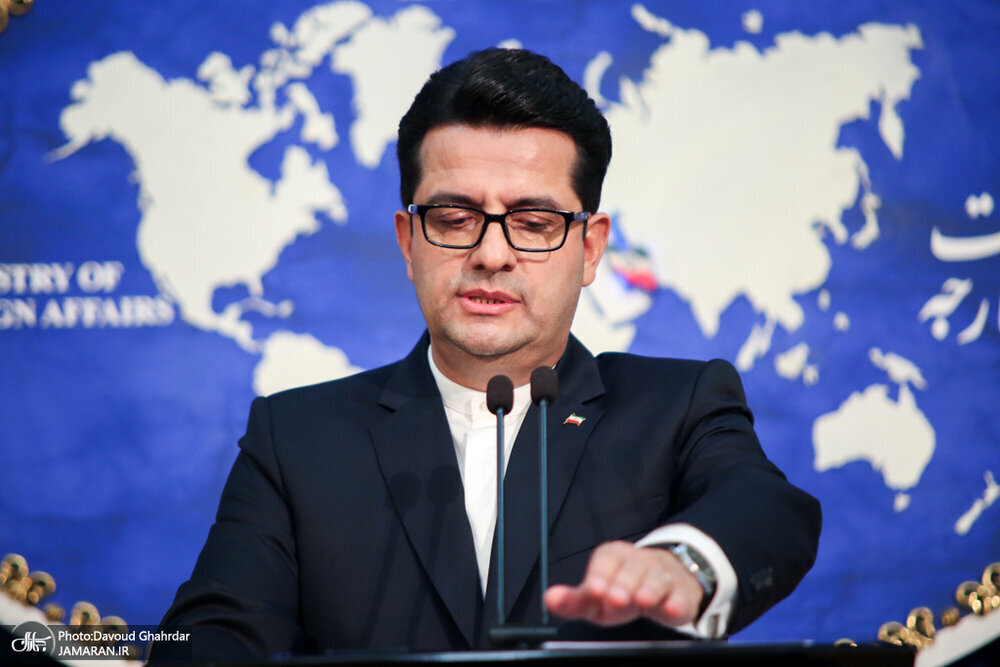Iran says IAEA questions should be technical, legal

TEHRAN- Foreign Ministry spokesman announced on Wednesday that Iran is only tasked to answer “legal and technical questions” by the International Atomic Agency Organization (IAEA).
In his video news conference, Abbas Mousavi said, "Iran's cooperation framework with the agency is obvious, so the agency should keep its creditability respected and do not pursue any futile question or claim planned by anyone or any regime."
"The agency's questions should enjoy legal and technical bases," the spokesman said, rejecting any politically-tainted attempt by certain regimes to force the IAEA to put Iran under pressure.
Mousavi said that Atomic Energy Organization of Iran (AEOI) spokesman Behrouz Kamalvandi has responded to the recent claims by the IAEA underscoring that "we have had the highest level of technical cooperation with the agency (and that) Iran reserves the right not to answer any baseless questions asked by the agency."
Speaking in Vienna on March 9, Rafael Grossi, the new head of the IAEA, demanded that Iran should stop blocking the IAEA investigation into three possible nuclear sites.
Grossi told the IAEA governing board that Iran should “cooperate immediately and fully with the agency.”
Tehran’s cooperation should include “providing prompt access to the locations specified” by the IAEA, he added.
Grossi said in February that Tehran was refusing to answer questions about three locations where nuclear material may have been used or stored before Iran concluded its 2015 nuclear deal with world powers.
He claimed without Tehran’s cooperation, it will be difficult for the IAEA to confirm whether or not Iran has declared all of its nuclear materials.
Kamalvandi has said Grossi is using the bogus espionage by Israel for its
‘Europeans should not be worried about IAEA report on Iran’
The Foreign Ministry spokesman further pointed to the reaction of the European nations to the recent report of Grossi, saying, "The issue has nothing to do with the Europeans officials. We have already voiced our concerns.”
"(Foreign Minister Mohammad Javad) Zarif, in a phone conversation with Josep Borrell (the high representative of the European Union for Foreign Affairs and Security Policy), talked about the issue as well as Iran's cooperation with the agency," Mousavi added
Iran is ready to return to JCPOA undertakings if E3 fulfills commitments
Elsewhere in his remarks, Mousavi said, "The European Union's recent statement comprises two parts of Iran's economic interest from the JCPOA and Tehran's commitments under the deal. We consider the statement as a ‘treatment statement’, so if the Europeans are ready we are ready too. They should fulfill their JCPOA commitments to guarantee our economic interest according to the deal's text."
"Whenever Europe takes practical steps to fulfill their commitments, Iran will also embark on balancing its obligations and rights," Mousavi said.
In the JCPOA joint commission meeting in Vienna on Feb. 27, a statement was issued in which it was said participants “acknowledged that the re-imposition of U.S. sanctions did not allow Iran to reap the full benefits arising from sanctions-lifting.”
In early February, President Hassan Rouhani said, in a meeting with Borrell in Tehran, that Iran was ready to "return to its commitments" under the 2015 nuclear deal when other parties uphold their commitments.
Rouhani added that Iran would continue cooperating with international nuclear inspectors "unless we face a new situation."
Iran has been reducing its obligations to the JCPOA since President Donald Trump pulled the U.S. out of the deal in 2018 and imposed the toughest ever sanctions in history against Iran in line with his administration’s “maximum pressure” strategy against Tehran.
Britain, France, and Germany (the E3) have claimed that they are working to keep the agreement alive but so far they have taken no concrete measure to protect Iran’s economy from sanctions.
Borrell's trip to Tehran was part of what is called the dispute settlement mechanism under which Iran would enter negotiations to keep the deal alive in order to avoid taking the matter to the UN Security Council.
Under the 2015 deal, Iran agreed to curb its uranium enrichment in exchange for termination of economic and financial sanctions.
MJ/PA
